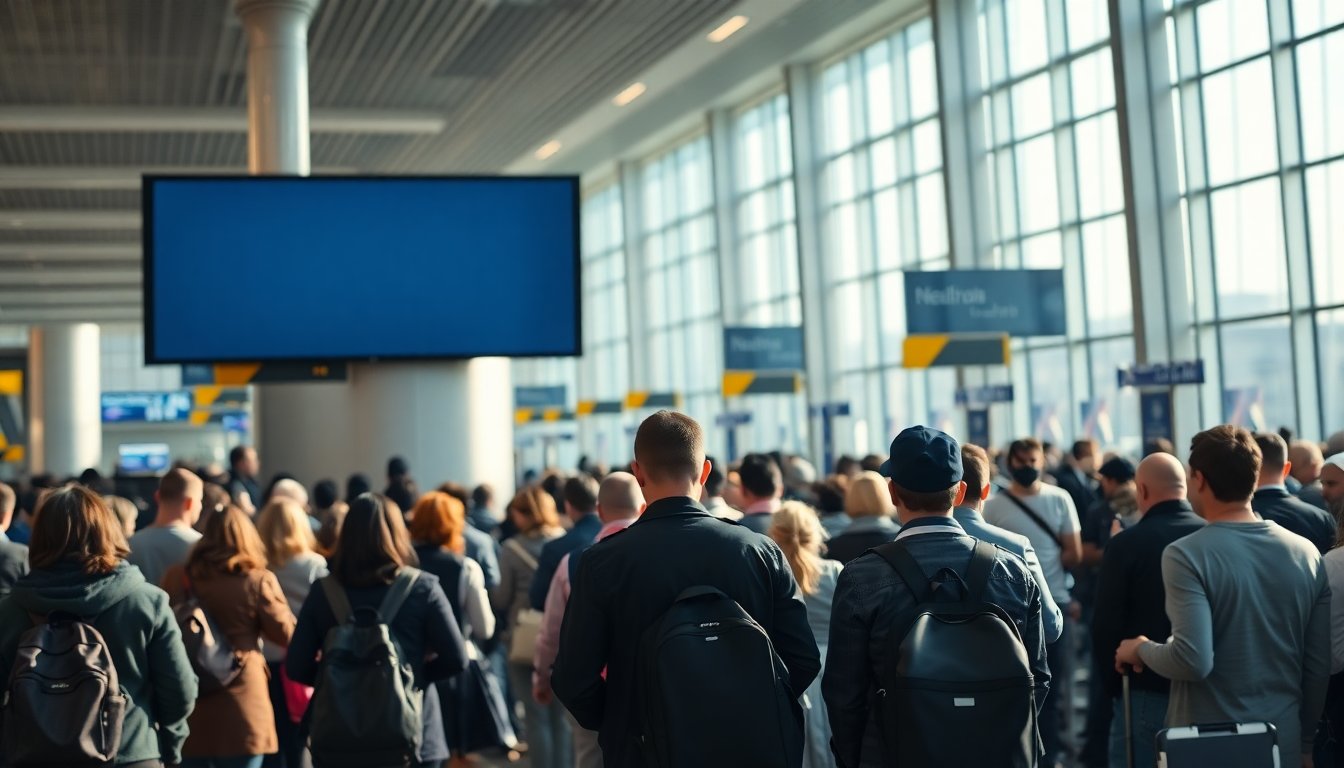Table of Contents
A recent cyberattack on Collins Aerospace has caused significant operational disruptions at major European airports, including London’s Heathrow, the busiest in Europe. The incident, which occurred on a Saturday, led to numerous flight delays and cancellations affecting thousands of travelers.
Collins Aerospace, a key provider of check-in and boarding systems used by airlines globally, reported a substantial technical issue causing delays for passengers. As the situation developed, Heathrow Airport warned travelers of potential delays, prompting similar alerts from other affected airports, including Brussels and Berlin.
Extent of the Disruption
Following the cyber incident, RTX, the parent company of Collins Aerospace, acknowledged the cyber-related disruption impacting its software at select airports. However, they did not disclose specific locations. Dublin Airport reported minor effects from the ongoing issue, which also affected Cork Airport, Ireland’s second-largest airport.
RTX stated that the disruption primarily impacts electronic customer check-in and baggage drop services. The company noted that challenges could be mitigated through manual check-in operations. RTX is actively working to restore full functionality, but details regarding the attackers remain undisclosed.
Official Reactions and Investigations
A spokesperson for the European Commission stated that there were currently no indications of a widespread or severe attack, while investigations into the incident’s origins continue. Data from Cirium, an aviation data provider, indicated that 29 flights had been canceled across Heathrow, Berlin, and Brussels, with significant delays reported for many others.
Typically, such widespread outages can be linked to ransomware attacks, where hackers paralyze corporate networks to extort payment, or acts of deliberate sabotage. Hisham Al Assam, a computer science expert from the University of Buckingham, emphasized that this incident underscores the vulnerabilities associated with shared digital infrastructure, which can create single points of failure affecting multiple airlines.
Travelers Caught in the Chaos
Many travelers experienced confusion and frustration as the situation unfolded. Tereza Pultarova, at Heathrow for a connecting flight to Cape Town via Amsterdam, expressed dismay at the lack of her airline’s service desk, which left passengers without essential information. She described the atmosphere as chaotic and noted that many were struggling to navigate the situation.
At Berlin Airport, travelers faced extended check-in times, with updates on the disruptions slow to emerge. Kim Reisen shared her experience, stating that the only information received was regarding a “technical fault,” contributing to the uncertainty surrounding their travel plans. In contrast, EasyJet, one of Europe’s largest airlines, reported normal operations and did not anticipate any impact on its flights for the day.
Impact on Airlines and Future Considerations
Major airlines like Delta Air Lines and United Airlines indicated they expected minimal disruptions. However, the broader implications of such cyber incidents raise critical questions about existing security measures. The National Cyber Security Centre in the UK is collaborating with Collins Aerospace and the affected airports to assess the full extent of the incident.
As investigations proceed, the aviation sector must address the vulnerabilities exposed by this attack. With increasing reliance on digital systems, robust cybersecurity measures are essential to protect against future threats that could impact travelers worldwide.


